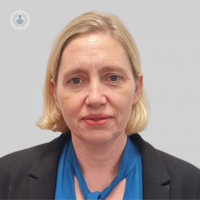Early lung health screening: Key to better outcomes
Autore:
Lung health is a critical aspect of overall well-being, yet it is often overlooked until problems arise. Lung health screening is a proactive measure designed to detect early signs of lung disease, including lung cancer, in individuals who may be at risk. Dr Katharine Hurt, consultant respiratory physician, aims to provide you with a clear understanding of what lung health screening entails, why it is important, and who should consider it.

What is lung health screening?
Lung health screening involves a series of tests and evaluations to check for lung diseases before symptoms appear. The primary tool used in this screening is a low-dose computed tomography (CT) scan, which creates detailed images of your lungs using a small amount of radiation. This method is highly effective in detecting lung abnormalities at an early stage.
Who should consider lung health screening?
Lung health screening is particularly recommended for individuals who are at higher risk of lung cancer. The key risk factors include:
- Age: Adults aged 55 to 80 years are generally considered for screening.
- Smoking history: Individuals with a history of heavy smoking (a pack of cigarettes a day for 30 years or more) are prime candidates.
- Exposure to harmful substances: Long-term exposure to radon, asbestos, or other harmful chemicals increases the risk of lung diseases.
- Family history: A family history of lung cancer can also necessitate screening. If you fall into one of these categories, discussing lung health screening with your healthcare provider is crucial.
The screening process
The lung health screening process is straightforward and non-invasive. During the screening, you will lie on a table that slides through the CT scanner. The scanner uses X-rays to take multiple images of your lungs from different angles, which a computer then compiles into a detailed picture. The procedure typically takes about 10 minutes and does not require any special preparation.
Benefits of early detection
Early detection of lung disease, particularly lung cancer, significantly improves the chances of successful treatment. Lung cancer detected at an early stage can often be treated more effectively, increasing survival rates and reducing the severity of treatment required. Additionally, identifying other lung conditions early, such as chronic obstructive pulmonary disease (COPD), allows for timely intervention to manage symptoms and improve quality of life.
Potential risks and considerations
While lung health screening has substantial benefits, it is not without risks. The low-dose radiation used in CT scans carries a small risk of radiation exposure. There is also the possibility of false positives, where the scan detects an abnormality that is not cancer, leading to further tests and anxiety. It is essential to weigh these risks with your healthcare provider when considering lung health screening.


